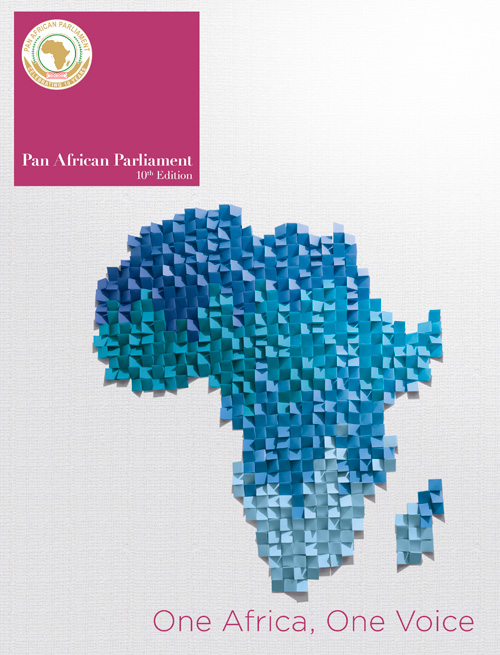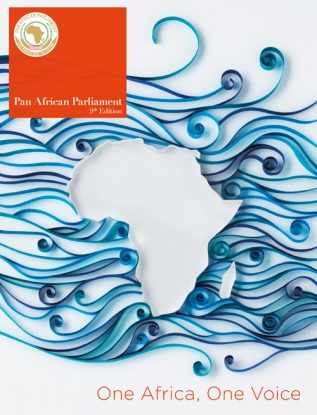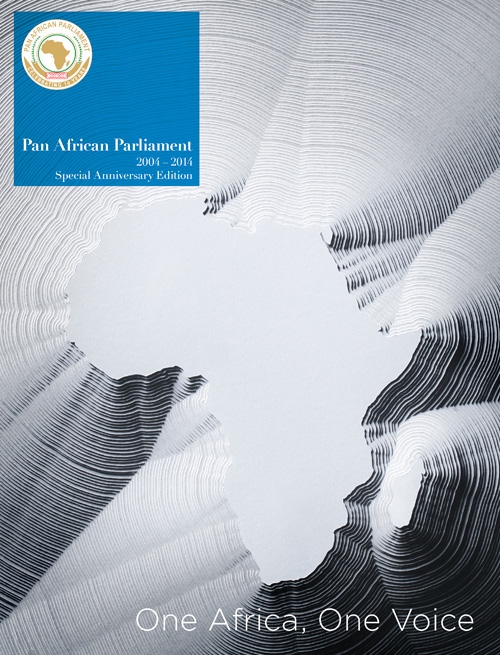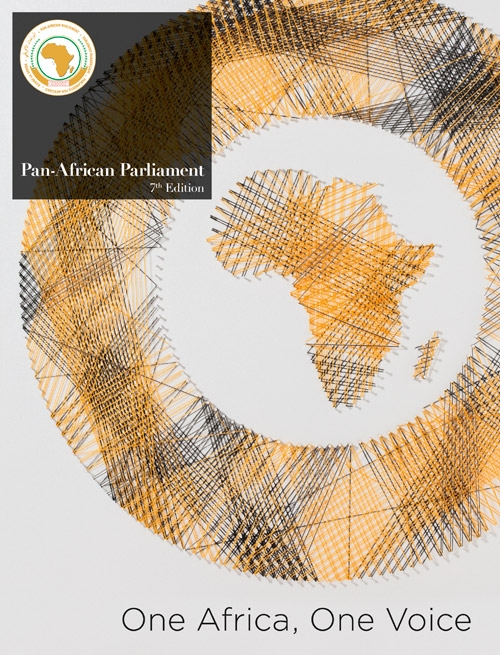
The Fifth Annual Conference of Speakers of African Parliaments brought together officials of AU Member States and those of regional legislative bodies to ensure that National and Regional Parliaments were aware of the latest AU decisions, policies and programmes.
The President of the PAP, Hon Bethel Nnaemeka Amadi, addressed the Speakers and asked them to pay attention to developing infrastructure so that the continent could move forward.
‘It is easier to move to a European capital than between two African capitals,’ said Hon Amadi, adding that ‘your presence here is indispensable. Your contribution is a heavy load but you must carry it as we move our people out of disease, hunger and poverty.’
During the conference it was affirmed that Pan Africanism and the African Renaissance remained vital engines for integration and growth. The principle of Pan Africanism embodies, in essence, an emancipatory vocation and option for a struggle, which is made conscious by cultural rehabilitation and the restoration of the dignity of African people. A conclusion was made that there is a need to reflect on the progress made to date regarding African integration.
‘Your presence here is indispensable. Your contribution is a heavy load but you must carry it as we move our people out of disease, hunger and poverty’
On the topic of transformation of the Pan African Parliament, the conference resolved that special attention be paid to the Draft Protocol of the PAP. All Parliaments should be responsible for making it clear to their Heads of State, governments and Ministers of Foreign Affairs that there is a definite need for the PAP to have legislative powers. This will empower the PAP to develop draft model laws to support the harmonisation of laws on the continent in clearly defined areas. It will create a legal framework for continental integration.
Working together
It was noted that Africa conducts little trade with itself. Some 5% occurs in the Common Market for Eastern and Southern Africa, 10% in the Economic Community Of West African States, 8% in the West African Economic and Monetary Union, 20% in the Association of Southeast Asian Nations, 35% in the North American Free Trade Agreement and 60% in the EU. The PAP should promote an increase in cross-border trade in Africa through frameworks and mechanisms to remove non-tariff barriers, such as restrictive rules of origin and import and export barriers. The need to reform the regulations and immigration procedures that limit the potential for cross-border trade and investment was also noted.
Participants agreed that special attention should be given to the free movement of goods, services and people, especially women traders. The PAP should thus work in conjunction with Regional and National Parliaments to align legislation so that current barriers can be removed.
There is need for a shift in the behaviour from a state of carefree consumption of imported goods to one of production of manufactured goods, food, technologies, knowledge and inventions, especially in areas where Africa has a comparative advantage. There is also a strong need for co-ordination at a continental level to leverage a collective African voice during international trade negotiations.
Instruments of law
Regarding legislation, the conference delegates agreed that the PAP, in conjunction with National Parliaments, should make concerted efforts to accelerate ratification, domestication and implementation of AU instruments. To realise this goal, the conference pledged to focus on the following actions:
- Produce annual compendiums of decisions passed by AU Heads of State and governments and send them to National Parliaments.
- Ensure that Parliaments and parliamentary committees consider the AU instruments that have been adopted.
- Link the AU departments to PAP committees and national parliamentary committees to achieve the required inter-linkages, co-operation, synergy and oversight over AU instruments.
- Sensitise government departments about the need to domesticate the AU instruments.
- Report to the annual Speakers’ Conference on the progress made.
On the promotion of democracy and the practices of good governance, it was recommended that the Speakers of National Parliaments should co-ordinate with Ministers of Foreign Affairs to gather reports on instruments signed by Heads of State and governments. The conference resolved that the PAP, in conjunction with the National Parliaments, should ensure that relevant committees at national levels track the progress of the ratification and domestication of AU instruments. All National Parliaments should have a standing item on their agendas about the state of ratification of AU instruments.
The PAP should create frameworks so that the proper oversight can occur when AU instruments are ratified and implemented
It was further recommended that National and Regional Parliaments should be part of the design process of the AU Charter. This would enable adequate co-operation and linkages to help enable speedy ratification and domestication. In this regard, the PAP should create frameworks that enable adequate alignment so that the proper oversight can occur when AU instruments are ratified and implemented. Regional Parliaments, in conjunction with the PAP, should develop a framework to harmonise AU policies and instruments.
On the final point on the agenda, the conference resolved that there was urgent need to monitor the implementation of the Millennium Development Goals (MDGs) and ensure that adequate budgetary allocations are made for that purpose. The following actions were specifically recommended:
- Parliaments should be involved in the formulation of the MDGs strategy at national level to allow formal and informal input from grass-roots people and civil society.
- Standing committees and working groups should track and oversee the progress of the MDGs.
- Laws and policies should be developed that provide social protection to the marginalised.
- Effective budgetary scrutiny should be prioritised with regard to financial allocations that are made toward social protection.
The African Speakers of Parliaments also condemned the violence and killings in Egypt at the time, and urged parties in the conflict to exercise restraint in their actions.
In a communiqué at the end of the conference, the Speakers expressed concern that innocent people were being killed on a daily basis on the streets of Cairo. The conference ‘condemns this act of brutality and calls upon the African Union and the international community to take action to prevent further deaths’.







